#cosmic pessimism
Quote
Nothing is more unbearable to a person than to be in a state of repose, without passion, without occupation, without distractions, without purpose. One then feels one’s nothingness, one’s abandon, one’s insufficiency, one’s dependency, one’s powerlessness, one’s emptiness. Straightaway there arises from the soul ennui, depression, sorrow, spite, despair.
Eugene Thacker, Cosmic Pessimism
463 notes
·
View notes
Text
riffing off of ligotti: considering the fact that all life on earth, but even earlier than that, sapient life, is inevitably predestined to come to an end (whether that be in ten years or ten billion), it can be said that we are all doomed by the narrative, dead from the beginning since we are aware that all that we create is not eternal, not able to outlast its own finale.
in that respect, the entire planet is a haunted house, and we – people, all those blessed with cognition and emotion – are the hollow spectres that stalk its corridors.
#i'm not a pseudointellectual *stares into the camera*#thomas ligotti#rust cohle#cosmic pessimism#cosmic horror#lovecraft#hauntology#haunting#nihilism#cthulhu mythos#gothic#jamie.txt
25 notes
·
View notes
Text
Song of Sorrow. Nietzsche once castigated Schopenhauer for not being pessimist enough. He writes:
"Schopenhauer, though a pessimist, really – played the flute. Every day, after dinner: one should read his biography on that. And incidentally: a pessimist, one who denies God and the world but comes to a stop before morality – who affirms morality and plays the flute … Is that really – a pessimist?" (1966, 99)
We know that Schopenhauer did possess a collection of instruments, and we also know that Nietzsche himself composed music. But for the pessimist who says no to everything and yet finds comfort in music, the no-saying of pessimism can only be a weak way of saying yes – the weightiest statement undercut by the flightiest of replies. The least that Schopenhauer could’ve done is to play the bass.
I’m not a big fan of the flute, or, for that matter, wind instruments generally. But what Nietzsche forgets is the role that the flute has historically played in Greek tragedy. In tragedy, the flute (aulos) is not an instrument of levity and joy, but of solitude and sorrow. The Greek aulos not only expresses the grief of tragic loss, but it does so in a way that renders weeping and singing inseparable from each other. This is the mourning voice. Set apart from the official civic rituals of funerary mourning, the mourning voice constantly threatens to dissolve song into wailing, music into moaning, and the voice into a disarticulate anti-music.
--Eugene Thacker, “Cosmic Pessimism”
#eugene thacker#pessimism#cosmic pessimism#music#sound studies#philosophy#nietzsche#arthur schopenhauer#schopenauer#mourning#melacholy#sorrow#poetry#theory
39 notes
·
View notes
Text
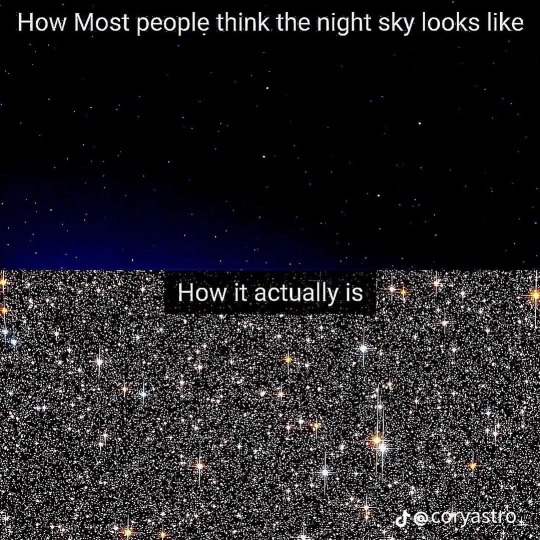

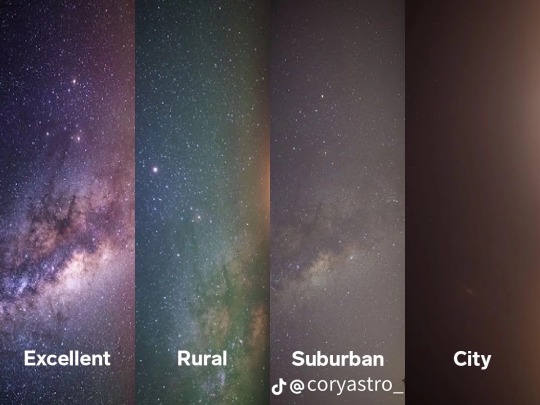
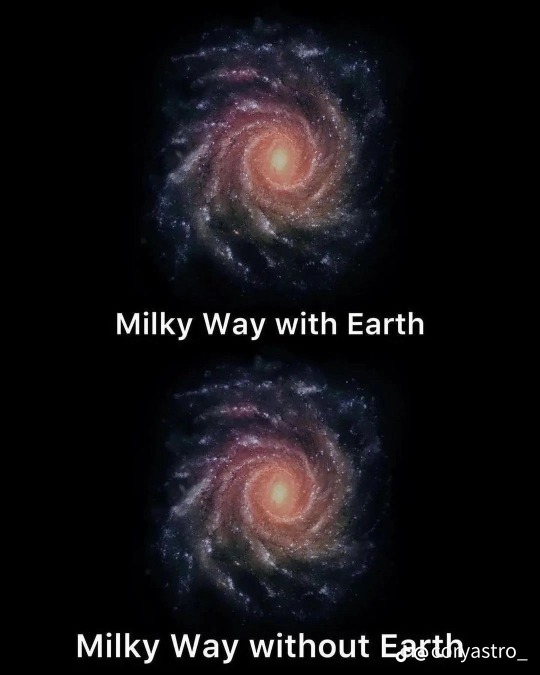

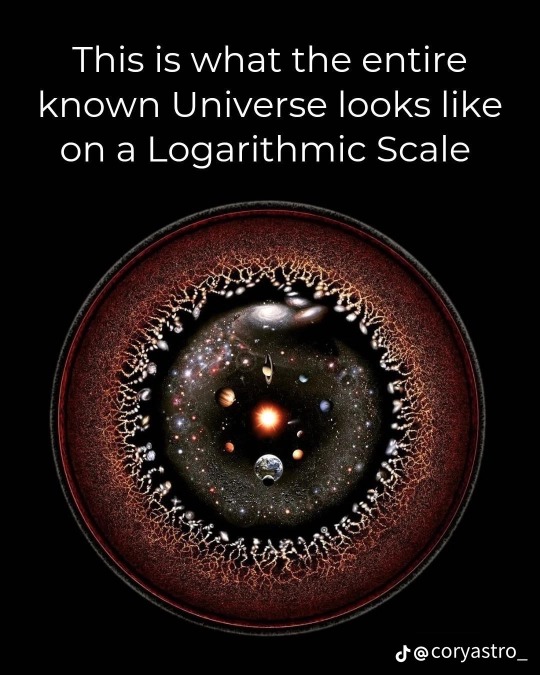
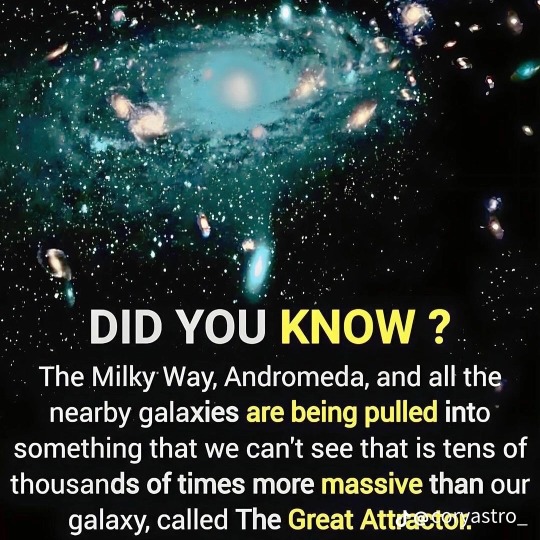
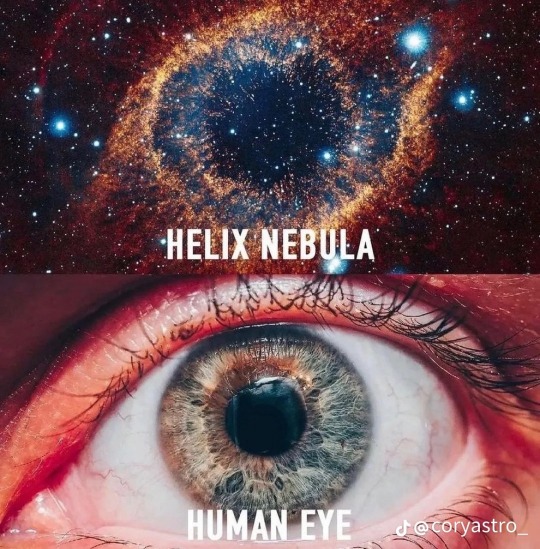
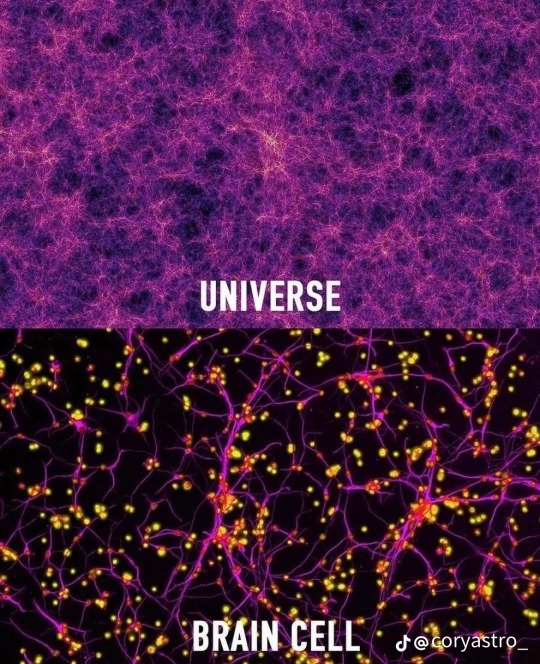
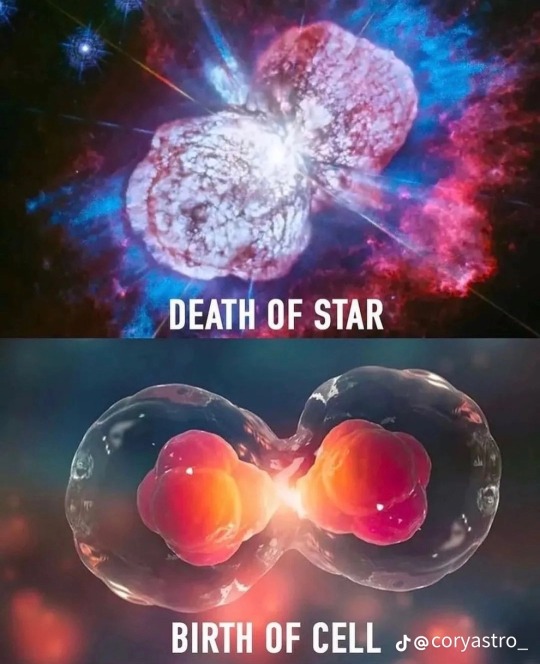
#space#cosmos#cosmology#cosmicism#cosmic#cosmic pessimism#astronomy#brain#system#systems#universe#galaxy#milky way#nasa#nasa picture of the day#james webb space telescope#hubble#hubble telescope#eyes#as above so below#hermeticism#alchemy#occult#mysticism#philosophy#solar system#the sun#earth#stars
6 notes
·
View notes
Text
Recently Ocean Keltoi wrote a thread about what pagans can learn from the Bible. He basically claimed that the Bible is an incredible resource for pagans with regards to magic, offerings, sacrifice, and both historical and mythological storytelling, adding that hatred of Christianity stops pagans from appreciating that and thus "blocks one's ability to grow".
I'm going to be honest, that thread was kind of an L from Ocean. But I will say that the Bible could be a resource, depending exactly on what you're looking for. Because if you're looking for "pagan practice" you're probably not going to find it. Or, if you do, it's largely going to be from the perspective of people who despised the various polytheistic cults and traditions that surrounded them at the time. I suppose if you're looking for something to base Christian magic or the like on, I think it'd be more useful to look into the systems of (again, Christian) folk magic that actually used the Bible in invocations or spell-casting.
But here's what I would prefer to gleam from the Bible, if anything, as relevant strictly to my own approach:
Henotheism in a polytheistic cosmos: Technically, the narrative of the Bible does assume a cosmos in which multiple gods besides Yahweh exist, just that the narrative of the Bible centers around the worship of Yahweh and generally insists upon the sole worship of Yahweh. Indeed, there seems to be a whole council of divine beings who Yahweh presides over, and who gradually lose their stature as Yahweh condemns them. Other gods roam the land, receive worship, and even contend against Yahweh in struggles for power and/or territory. Adam and Eve eating the fruit of the tree of knowledge is explicitly stated as setting them on the path to joining the gods. This creates some ground for "Pagan" treatments of the Biblical landscape, not entirely unsuited to navigating our contemporary religious superstructure. It is also this exact henotheistic landscape that can, with little difficulty, reflect backwards towards the "pagan" cosmoses, often sites of divine rebellion.
Demonology: The Bible is full of demons, alongside its own distinct notion of the demonic. Granted the Apocrypha tend to have a lot more demonology going for them, but the Bible has a wide catalogue of demons that infest the popular imaginary to this day. Christian demonologists have of course frequently derived some of their demons from pagan gods that appeared in the Bible (for example Berith, Adrammelech, Astaroth, Beelzebub, to name just a few) and elsewhere. As Andrew Mark Henry (the Religion For Breakfast guy) noted recently, the demonic has its own way of conveying a sort of outer and/or inner shadow relative to the culture. To pronounce heresy in some ways vivifies that shadow, giving it form and content. The gods, even as demons, speak, even in the voices of demons, their cult, their divine content, and in this form do so in a subversive role.
For that particular point I would suggest a new video on the demonology of The Legend of Zelda. Yes, you heard that right.
youtube
Cosmic pessimism: This part may sound quite strange, but it's very easy to get a throughline of. Granted it's mostly relevant to Christianity, which as far as I can see really doesn't have the benefit of getting to argue with God that Jewish rabbinical tradition actually seems to have. But picture, for classical monotheism at least in "Western" terms, the throughline of a seemingly all-powerful singular deity, who is to be treated as the sole sovereign of the universe. That power, that intelligence, governs the whole of life and its course, and so is invariably responsible for its death. It is also possible to see a constant struggle of humanity with even the divine itself - a theme which can be found more often than you'd think in the Old Testament, but which is poorly appreciated, if at all, by Christianity at large. Whether it's Adam and Eve defying God and being exiled, arguably the story of the Tower of Babel whereby the tower itself is a struggle to connect humanity to the divine which is thwarted by God, Job demanding an explanation from God for all his turmoils before ultimately accepting God's word, or the story of Jacob wrestling with the angel or apparently God itself and being declared victorious by God itself and taking the name Israel as a result, there's actually quite a lot to work with that can furnish an admittedly rugged and darksome perspective on the universe. Not to mention exegesis around the "fall".
But all this is just what I can think of, and if anything a lot of it still assumes a counter-narrative assemblage. What Ocean has in mind to my mind seems altogether different, and the nature of that difference is in some ways the problem. Ocean thinks that the problem of the Biblical narrative is mostly that it was simply used to cultivate a supremacy narrative for Christianity, and I think that's a rather simplistic way to look at it, particularly when, if we're talking about supremacy, the proclamations of the sovereignty of a single god are right there, in the text. Even if it's about use, strictly, if you want to use it for that it's certainly not hard. But then the rest of Ocean's thread is essentially him talking about how witches and magicians invoked verses of the Psalms for example in their magic. But that's not actually in itself "Biblical insight on magic". That's Christians practicing their own variety of folk magic, in the name of the Christian God, probably centuries after the Bible was written. It's just saying that Christians have done magic with the Bible and that it's a part of history so you have to consider it as a pagan, never mind that it might not actually be relevant to your practice as a pagan, because reasons. I would have brought up the Greek Magical Papyri or The Eighth Book of Moses as better examples just because they actually seemed to involve invoking pagan gods like Horus or Helios alongside Jesus Chrestos, Michael, Gabriel, Raphael, and Iao Sabaoth in some spells while ostensibly still operating around very pagan ideas about religion and magic but hey, that's just me.
5 notes
·
View notes
Text

“The logic of pessimism moves through three refusals: a no-saying to the worst (refusal of the world-for-us, or Schopenhauer’s tears); a yes-saying to the worst (refusal of the world-in-itself, or Nietzsche’s laughter); and a no-saying to the for-us and the in-itself (a double refusal, or Cioran’s sleep).
Crying, laughing, sleeping—what other responses are adequate to a life that is so indifferent?”
― Eugene Thacker, Cosmic Pessimism
5 notes
·
View notes
Video
youtube
Dark Pain - cosmic pessimism
#youtube#dark ambient#cosmic pessimism#dsbm#giacomo leopardi#arthur schopenhauer#black metal#depressive black metal#atmospheric black metal#noise music#heavy metal#doomer#doomer music#ambient music#pessimismo cosmico#pessimism#dark music#darkness
0 notes
Text

Gif version
#netflix pinocchio#gdt pinocchio#pinocchio#gdt#guillermo del toro#sebastian j cricket#ewan mcgregor#life is pain#life is meaningless#give up#no hope#existentialism#nihilism#pessimism#realism#no hope no fear#despair#cosmic horror#nothing matters#depression
72 notes
·
View notes
Text
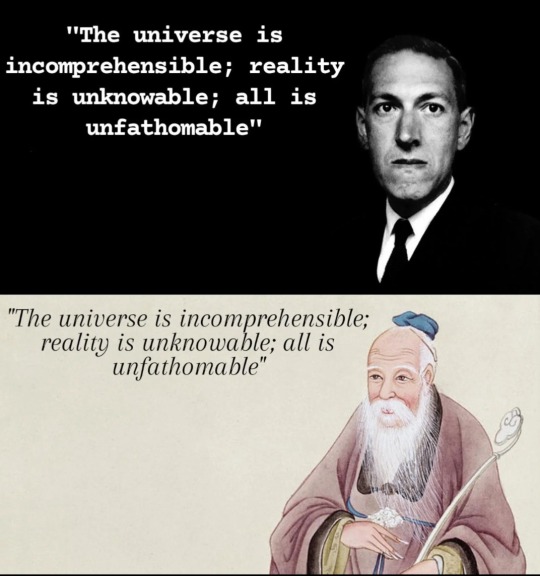
#hp lovecraft#lao tzu#pessimism#taoism#cosmic horror#cosmic beauty#everything is sacred#nothing is sacred
28 notes
·
View notes
Text
people should take Desert both literally (desert to the desert) and figuratively (desert the political "scene")
1 note
·
View note
Text
後悔と内省。
これこそ人を多次元宇宙的な広がりを持つ、あり得た無数の可能性に目を開かせる、極めて“後退的な”知性である。
Regret and introspection.
This is the very "regressive" intellect that opens human's eyes to the myriad possibilities that are possible in a multidimensional cosmic expanse.
#pessimism#pessimist#pessimistic#pessimistic poor writing#厭世主義的駄文#regret#introspection#possibilitie#multidimensional cosmic#regressive
0 notes
Photo
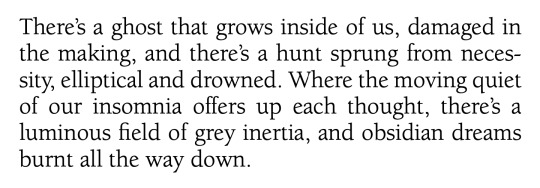
Eugene Thacker, Cosmic Pessimism
477 notes
·
View notes
Note
Hey have you read Cixin Liu's works? What is your opinion about them ?
Hi! :) Yes I've read 90% of his works, his non-fictional essay collection, as well as like 50% of academic criticisms on him out there, so if anyone has any other questions about Liu Cixin, I'd be very happy to answer! I first read the Three Body trilogy over ten years ago and was fascinated by the grandeur of his imagination that pulls you out of mundane life into the furthest corner of the unvierse at the end of time. There's something transcendental and awe-inspiring in his works that you rarely find in contemporary sci-fi. Having read most of his short stories preceding the Three Body trilogy, I also saw how Liu Cixin honed his writing skills and expanded his imagination over the years that allowed the Three Body trilogy to come to be. The Three Body trilogy is his magnum opus and I don't think he'll be able to produce anything as great again in the future. Liu Cixin has pretty much said everything he has to say in this trilogy.
If you ask me now, I'd say I mostly find him interesting because he's such a complex and conflicted writer. He clearly understands how democratic institutions allow a society and its people to thrive, and as a young man he supported the 1989 Tiananmen Square pro-democracy protests. On the other hand, with his childhood shaped by the collectivist authoritarianism of Mao's China, he's also prone to justifying the existence of authoritarian institutions, having this belief that authoritarianism ensures the survival of the collective at the expense of the individual and is necessary in harsh and desperate times. Liu Cixin has entrenched scientistic beliefs, arguing that science and technology could solve any problem that a cosmic civilisation might have. However, advanced godlike technology in his works rarely lead to bright futures and perfect utopias, but more often decaying and struggling civilisations losing vitality, freedom and creativity - in this sense, a scientific pessimism pervades his works contrary to his scientistic assertions. On the one hand, Liu Cixin loathes anthropocentrism and desires to turn his readers' gaze away from the anthropos and towards nature and the vast universe; on the other hand, he can't help but be drawn to the doctrines of humanism that treat human as the paragon of animals and a unique race of irreplacable value. Furthermore, he can't decide what's more important - to keep one's humanity at all costs or survive at the cost of one's humanity.
This is the conflicted writer that Liu Cixin is, shaped by his experience in Maoist China and later on, in the post-socialist, globalised China. The Three Body trilogy was already popular in China ten years ago, but now its popularity in China is blown out of all proportion. It's basically a sort of religion among its readers at this point, and you'll find people quoting it and appropriating ideas and concepts from it everywhere and in the most unexpected places. I'm sure Liu Cixin has very conflicted feelings about that.
35 notes
·
View notes
Text
Thinking about Claudia going up the mountain and dragging her dad along.
On the one hand, 4x09 reveals why she thought she could take the Spire itself, confident in her “umbra chora” sleep spell and that it would work as a back up; she would have the element of surprise. The only reason she didn’t wheel it out was because she probably thought no one was left behind at the Spire, period, and no one was besides Ibis. Whether her sleep spell works on Sky dragons remains to be seen (given that Zym was seemingly impervious to it in 4x09) but I can see her reasoning / plan in action. Additionally, maybe waited to have her dad back because she thought Viren may be useful as a mage.
The fact she sees the dragons leaving as a Sign though shows something much more worrisome, so more on that later.
Then you have the fact to contend with that climbing the Spire undoubtedly took more time because Viren was slow and understandably deeply traumatized by his experience. However, Claudia not clocking and/or thinking about the emotional ramifications of what he’s been through is precisely on brand for her, because it’s exactly what she does with Soren in S2-S3 and with Callum in S2.
Claudia is solution oriented, just like her father. While she loves magic, she’s not pulled by the same curiosity as he is, and focuses more on preparedness and perfectionism than being motivated by importance or downright obsession. She thinks if she can fix the problem, physically, with dark magic, it’s fixed. Soren doesn’t need to process anything their dad did, ultimately, because she cured his paralysis. Viren doesn’t need to have hangups over his death, because she brought him back, didn’t she? And then she’s blind sided and dismissive when they show that no, these things did emotionally stick with them, and are changing them, while she buries all her own feelings about each of these events deep into a hole and pretends like they aren’t there for her, too
And all this compounds itself into the idea that Claudia cannot consider, let alone process the fact, that she might be wrong
She doesn’t understand Harrow’s reservations about the switching spell (in spite of how horrific the reality of it working successfully would be in so many ways); she overrules the boys’ mission in spite of it “being the most important thing they’ll ever do” and something Callum commits to even once he knows the truth about Harrow; she approaches him in happiness and relief in 2x07, not realizing he’s going to still be furious with her for her past and ongoing actions; when she arrives back in Katolis, she believes that she and Soren “didn’t do anything wrong!” Even most plainly in her conversation with Soren in S4, which is why her turning back to give the coins is such a big deal for her character in a Lot of ways
But also like - if Claudia is always right, if keeping her family together is always right, if her and Aaravos’ goals ‘align’ and he’s the great being who gave humans magic and saw them as more than worthless, with her perpetual belief that the plan will work out in the face of Viren’s pessimism and then passivity, it’s like - then the universe wills it so. Things going her way isn’t just a coincidence; it’s a cosmic Sign that she’s on the right path
Because, according to her, what else could she possibly be on?
#tdp claudia#s4#4x02#claudia#mini meta#analysis series#tdp#i love my daughter who's five cognitive dissonances stacked in a trench coat#the dragon prince#tdp meta#morally ambiguous fam
141 notes
·
View notes
Text
Anthroposophy: Lucifer, Ahriman, Christ
"Lucifer" is a spiritualizing force of temptation and distraction that brings higher knowledge, freedom, unrestrained creative exploration, and the dissolution of structure. Following him is a path of depersonalization, foregoing personal history and possessions, spiritual bypassing, overindulging in fantasy and mythology, change for the sake of change, anarchy, delusion, false ideologies, seeing the world as an illusion with no real value, retreating from life, hedonistic confusion of what maximizes enjoyment and states of ecstasy or mania with what is divine; the desires, passions, and aspirations that lend to overreaching ambition or hubris. He motivates us to find bliss (lifted from the weight of physical existence) by chasing anything that excites or voices itself from spirit in spite of lacking the ability to discern (regressing into animal nature) where those impulses are coming from, leaving us in a perpetual state of wandering aimlessly with infinite potential.
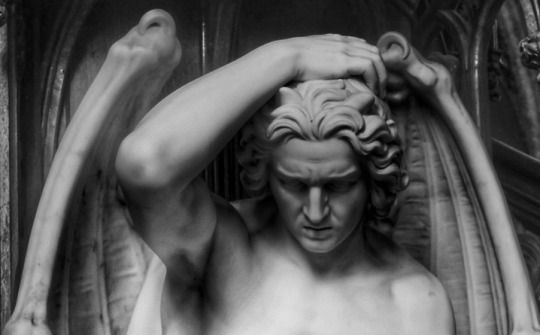
"Ahriman" is a materializing force of deception and lies that reduces things into forms and processes of physics that can be preserved in one differentiated state. Following him is a path of developing an overly analytical and mechanistic worldview, scientism, dogma/orthodoxy, reluctance to change, not being able to see beyond genetics, consumerism and commodification, acquisition of wealth, rationalism, weaponized intellectualism, becoming cold and dehumanized with a lack of empathy and compassion or any emotional depth; the fear, doubt, and pessimism rooted in material concerns such as survival, loss, and limitation. He motivates us to keep our essence contained in the physical realm (immortalize the body) by making us more like a machine (transhuman), looking for the solution to every problem through more effective systems of technology and surveillance, developing algorithms to recognize patterns and make predictions on a massive scale (artificial intelligence), and determining your value based solely on social credit.
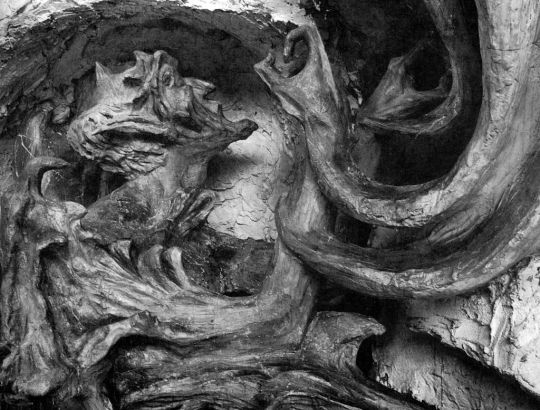
"Christ" is the harmonizing solar force that balances the Luciferic and Ahrimanic impulse. Jesus himself was an advanced soul that carried the essence of Christ to perform a ritual that changed humanity by his sacrifice. When Christ incarnated to serve this purpose, it allowed for humanity to ascend out of matter into the kingdom of Heaven represented by the soul. Through the essence of Christ, we attain a natural sense of morality and we’re able to evolve by working from within ourselves to develop a conscience and see clearly. This Christ consciousness rests in the heart chakra, a center of truth. Unless we are centered in the heart, we’re not truly participating in life. We find balance by grounding spirituality, refining the knowledge received from spirit, aligning our ego with the truth of our soul and using that to serve others in a more meaningful way, realizing our physical body as a temple of the divine.
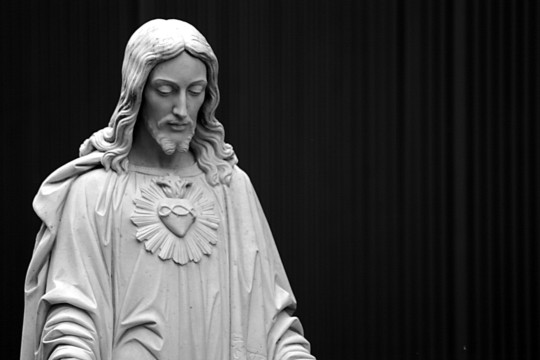
Without Christ consciousness, we fall under the influence of Lucifer or Ahriman and worship them as God. These forces then become parasitic and feed on our potential as individuals by draining and misdirecting our essence to serve them.
The names of these entities are ways of identifying forces at play that are higher cosmic impulses which drive and personify through us to greater or lesser extents at different phases of our evolution. Our consciousness is seen as a vessel which carries these impulses but the force itself transcends its personification. We may or may not be aware of the spiritual forces that are acting upon us but it’s only by learning what we can about their essence that we can start using them to transform ourselves.
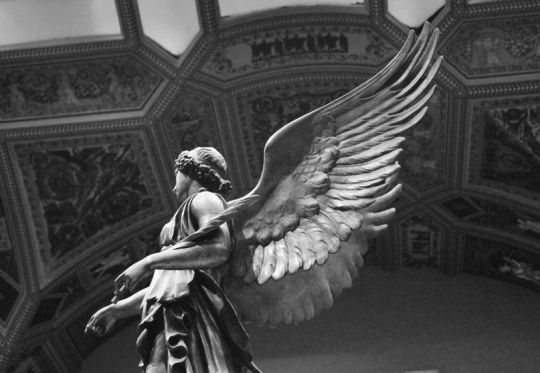
#lucifer#ahriman#christ#consciousness#anthroposophy#spirituality#meaning#purpose#humility#spiritual evolution#rudolf steiner#heart chakra#truth
9 notes
·
View notes
Text
Maelstrom
As always, I adore our looovely mod, dearest @laughingmango, not only for coordinating and running Ghost Swap for TEN YEARS over at @fyeahghosttrick (Can't wait for many more in its new format! Ghost Swap is dead, long live Ghost Swap!!) but also for being a delightful co-conspirator & friend.
A request for hurt/comfort mixed with cosmic pessimism power couple? Let me just...slip this in here....
You can read the fic at the link above, or the full text is below!
AO3 Profile
Fandom: Ghost Trick: Phantom Detective
Words: 2522
Summary: In the weeks after the Temsik incident, Cabanela is pressed into service as mediator and somewhat reluctant liaison between his two old friends. The maelstrom of their misunderstanding and regret is beginning to spiral too deeply for even one seasoned navigator to deal with; thank goodness he has someone to keep him informed even when he doesn't know it.
The front door hung open a crack, the house inside dark and quiet. Cabanela had bounded up the front steps, hand out to knock a sprightly rhythm on the door until he’d realized it was open, and put the hand on his hidden holster instead as he pushed the door open just an oonch more, just enough so he could slip in.
The living room stood empty, lights turned off. Cabanela stopped in the middle of the room, listening hard. Was that a radio playing softly, upstairs? Or a music box? Just in case he was missing something, he peeked into the kitchen and stopped, stricken. Jowd sat at the kitchen table, alone in the dark, one hand laid atop the family’s new kitten who was lay still on the table, the other equally absently stroking his miraculously-quickly healed knee. He didn’t look up, although a bitter twist of his lips acknowledged Cabanela’s entrance.
“What’s happenin’ here?” Cabanela said, leaning against the kitchen doorframe and flipping on the light, letting his frank, admiring gaze travel from Jowd’s head to feet. “You tryin’ to save on the electric bill, baby? Didn’t think things were so hard up here in the big house.”
Jowd snorted. “Appreciate the concern, thanks. Sorry your welcome’s a little lacking; the lady of the house is indisposed.”
“Hmm? Alma’s sick?” Cabanela ticked off a list on his fingers. “Babysitter, flowers, cold pack, juice. Oatmeal? Need anything eeelse from the store? I’ll run out there if you need; can’t have our baby feelin’ poorly when you just came home from the hospital.”
“She’s not sick.” Jowd turned his head away. “Just… indisposed. Kamila’s with my mother, so no babysitter needed. Flowers aren’t a bad idea, but…well. Might be better coming from you at the moment.”
“Huuuh?” Cabanela craned his neck back at the stairs. “Is she here then?”
“Upstairs.” Jowd chuckled a little, his voice bitter. “It’s my fault. She said she needed some time to herself.”
“Jowd?” Cabanela’s voice wasn’t uncertain; nothing of the sort. “Why was the front door open?”
Jowd shrugged. “Sissel must have left it open. He’ll get a good talking-to when he’s back.”
Cabanela sent the clearly-present kitten a pointed look. “Thooought he was an indoor-only kitten now? Livin’ the good life here at his new home.”
“Ha!” Jowd chuckled a little more. “There’s another problem. The good life.”
Cabanela put a hand on his shoulder. “You’re bein’ real opaque right now, even for you, m’man. What’s goin’ on?”
“I’m being the only way I know how to be.” Jowd stood and stretched, ignoring Cabanela’s hand. “I suppose I can try pretending to be Alma for a minute or five. Tea? Coffee? Wine?”
“How about you play at bein’ Jowd a bit more, but a biiit more forthcomin’?”
“Now what kind of precedent would that set? You’re a detective, you should practice your deducting skills.”
“Believe me, ooold friend, you have me workin’ overtime on that little mystery. But fine. Talkin’ to your looovely wife it is. Interviewin’ witnesses is a fine art and they tell me I’m still good at it, even if I still need practice at questionin’ my suspects.”
“Well, as long as your gun’s still by your side, your record’s back on track.”
“Ouch, baby.” Cabanela’s voice didn’t change, not by an iota, and his face stayed tranquil, but a nearly imperceptible shift of his posture betrayed the hit. “Good one.”
“I’m sorry.” Jowd’s voice was sincere, almost painfully so. He nodded at the spot on the wall where an antique gun had hung until he’d come home from the hospital the week prior. “You can see how my own track record stands. We’re standing at one and zero between the two of us. Don’t worry, you’re winning.”
Cabanela scowled at the wall, then at Jowd as Jowd sat back down and turned his stare back to the kitten, his face morose and eyes shuttered. Cabanela glared at him a moment more and whirled, taking the stairs up with a little less grace than usual, and followed the soft tinkling of the music box to the nursery, where Alma sat in the rocking chair. She glared at the wooden music box in her hands, letting the small melody it played ring out over and over.
“Oh. Hello,” she said, when she caught sight of Cabanela, and smiled. Her whole face had always seemed to light from the inside when she smiled, and Cabanela took his usual beat to let her see his admiration. But her light seemed dim and flickering, and her smile didn’t quite reach her eyes. “Did you see Jowd downstairs?”
“Of course. And the front door was open too, baby. Little dangerous, isn’t it?”
“Apparently not!” Alma’s lips twisted. “According to him, we’re going to be just fine whether the door’s open, closed, gone… perhaps he’s right. Maybe it just doesn’t matter. After all, we have a cat now. Whatever that means.”
Cabanela dropped to his knees and gently took the music box away from her, setting it aside before taking her hand. “Baby, you’re streeetched to the breakin’ point. What’s goin’ on between you two?”
“I don’t know!” Alma burst out, and withdrew her hand from his, putting it along with her other one firmly in her lap. “You’ve seen him! He’s not the Jowd I knew anymore, somehow. Between one day and the next he’s gone somewhere I can’t seem to get to.”
“Caaan’t?” Cabanela stared at Alma.
“Can’t.” Alma said with finality. “I always could before. I always, always knew who he was and how he thought before. But now he acts… He hardly touches me, but he stares at me all the time when he thinks I’m not looking. He can barely look at Kamila. He handed me this—” she gestured to the music box, “and told me to put that gun on the wall in it so he could throw it away. But... why this? I have a shoe box, or anything other then…that.” The music box tinkled to a stop, its faltering notes dying to a final hush. “He acts like a ghost,” she said finally. “Like he’s a ghost in his own home.”
“A ghost, huh?” Cabanela sat back on his heels. “That sounds about right. He’s just been driftin’ since that day at the park. People at the precinct are startin’ to notice.”
“I must have done something,” Alma said, her words leaden in the abyssal silence between them. “It must be my fault, somehow. Maybe… maybe it’s me that’s more like a ghost. Why else would he act as though I’m not even here?”
“Baby, how on earth could it be your fault?” Cabanela took her hand again, more firmly this time, not letting it go even as she tried to tug it away. “You answer me that. You’re both so focused on takin’ the blame for somethin’ that shouldn’t have had anythin’ to do with you.”
“Well.” Alma’s stubborn gaze met his. “He won’t talk to me. At least you’ve told me what you know happened that day at the park. Whatever guilt you’re taking on, at least you’re owning it! I don’t really understand what happened with that programmer, but he’s in jail, and Jowd acts like he is too, and I’m his warden. I don’t need him to confess—”
“Wouldn’t miiind it though,” Cabanela muttered.
“I just need him to tell me what I can do to make it—us— right. I don’t mind the cat. I don’t mind taking down the gun. I don’t even care about the stupid music box. But I can’t fix anything if he doesn’t…just tell me what’s happening.”
Cabanela shrugged. “You don’t haaave to fix what’s not your problem.”
“But it is my problem. Or I am the problem. Either way,” Alma said with a wry twist of her lips, “I don’t see anyone else stepping in.”
“I came as soon as I could,” Cabanela said, stung, “Anytime you call, I’m comin’ for you. You know I’d give you my heart’s blood to make things right between you.”
One side of Alma’s mouth lifted in an odd little smile. “Would you?” She drew back a little and put a hand to his chin, tilting his head so he had to look directly into her eyes. She stared into his soul, searching for something he refused to believe she sought and dared not show her as she said again, “Would you really?”
“Of cooourse. As long as I’m kickin’. Now come on, I’m cuttin’ in to this little dance.” Cabanela stood, drawing her up, out of the chair, and with him as he danced down the stairs. He kicked the forgotten front door closed, then took her hand and danced her into the kitchen, surprising Jowd into laughter as Cabanela whirled Alma around the table until she, reluctantly at first, started to giggle. Finally, he took Jowd’s hand too and put Alma’s hand in it. “Your turn, baby.”
The kitchen went still and quiet again and they looked away from each other. Cabanela let out a huff of irritation.
“Deal me the deal, man,” he said to Jowd. “You caaalled me here, you must have wanted somethin’.”
Jowd sent him an odd look. “I didn’t… I really can’t want anything from you at this point. I can only thank you,” he said, finally. “You’ve given up a lot for me, but I can’t explain how much I owe you. Not… now.”
“Why not?” Alma said, grabbing Cabanela’s hand with her free one. “Something tells me you need Cabanela here; you need to talk to him to let this thing that’s weighing you down go. I don’t know why talking to me is so difficult now, but I’ll take any help if it brings you back to me. To us.”
Jowd said, his face betraying painful bewilderment, “But I came back. And you’ve seen, in the last couple weeks… I’m not who I was. I don’t know anymore how to be more than this.”
“Help me understand who it is you want to be, then!” Alma snapped. “No one died! You were hurt but you’ve healed so fast it’s unbelievable! That little girl is safe, and even that man who took her hostage wasn’t killed even though by all rights he should have been. Am I asking too much to want the man I love to be here, with me?” Alma said, stricken. “Or is it that I amtoo much?”
Cabanela watched them, seeing their mutual spiral into despair threatening to swallow them into its oceanic maw, and him along with it. Abruptly, he decided it was enough. He slapped a hand on the table. They both jumped and looked at him questioningly.
“You two stop actin’ just like each other for fiiive whole minutes and answer me an honest question. Can you do that?” he said.
“Probably,” said Jowd, as Alma said, “Yes?” Her eyes were oddly expectant.
“Why aren’t you two workin’ together at makin’ your old friend here more miserable? Seems to me you’d do a better job of messin’ with me instead of each other if you coordinated a bit more, maybe made some plans. As a prank this is lackin’ somethin’.”
“What?” Jowd said and frowned. “This had nothing to do with you.”
“We weren’t even expecting you,” Alma added, and sighed in some unexplained disappointment with the tack Cabanela had chosen. “Or at least, I wasn’t. I’m so sorry. If Jowd invited you, he didn’t tell me…” She paused and added, “…which is no different than usual, lately.”
“I thought you invited him,” Jowd said to her. She shook her head and shrugged.
“I got a phone call from your number,” Cabanela said, “and came straight on over because nobody was talkin’! When I found that door open, you should have heard my poor old heart goin’ pitter-pat with worry. Why take my heart’s blood when you two are the ooonly ones who could scare it into stoppin’? So if this is a prank, ‘fess up; your daughter couldn’t have done it and this little fellow snoozin’ on the table seems out for the count.”
“Oh, he’s counting on something,” Jowd said, and laughed when they looked at him with exasperation. “I’m trying,” he said, and paused. For the first time, he appeared uncomfortable. “I…need more time. There can’t be too much, ever, from either of you,” he added, and looked to Cabanela. “I promise there’s no conspiracy, no prank, no pact with Alma to mess with you,” he said, “but… I’m glad you came, even though I didn’t plan it. Perhaps Si— the gods just knew I needed—” he stopped. “Proof,” he finished, rather uncomfortably.
“Of what, baby?” Cabanela said, puzzled.
Jowd didn’t answer; he shrugged.
“If it’s loyalty, I would think you’d know you had that already,” Alma said with a tart twist of her lips. “Or were you worried about his safety?”
“Ha! The gods and I know that loyalty and your safety is the last thing I’d worry about for either of you at this point,” Jowd said without hesitation. Cabanela looked surprised, then gratified, and Alma sent him a sidelong smile and a nod.
“Thank goodness,” she said. “If you thought either of us would ever just… ghost you, just leave you without any explanation, and that was the reason you wouldn’t just talk to us, it would be a sign that it really was all over.”
“It was! And then it started again,” Jowd said, and began to laugh until the kitchen rang with it.
“Oh, well, is that all? Well, no wonder we’ve been struggling,” Alma said, and began to chuckle too. Just like that, the tension eased despite the palpable tinge of some irony not everyone in the conversation was quite getting, and they sat around the kitchen table laughing together. The conversation really didn’t feel over, but for now it had come to a stop and it seemed a better resting place than any other alternative which had presented itself.
Cabanela had to admit, if only to himself, he had no idea how to get the rest of the truth out of Jowd yet, but it was still the beginning of something he hadn’t quite dared to believe could be possible after the Temsik incident: some kind of a fresh start. He took comfort in that, and in the feel of Jowd’s warm arm around him, in the cool slide of Alma’s arm against his, and allowed himself, as he would with no other pair, to laugh himself into some kind of uncertain and temporary peace.
Almost unnoticed, the kitten sat up in the middle of all this hilarity and wandered away, its nap evidently over; presumably, Cabanela figured as he barely registered it leaving, the noise bothered it and it had other tasks for the evening which only a cat might understand. Silently, he wished it luck along with a little bit of fellow feeling; he, like the cat, had his work cut out for him handling two such as these.
22 notes
·
View notes